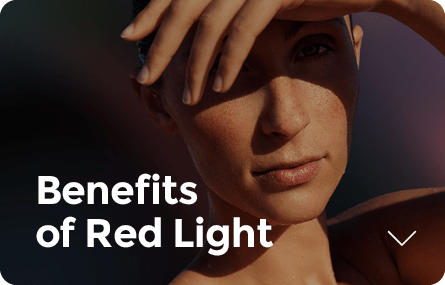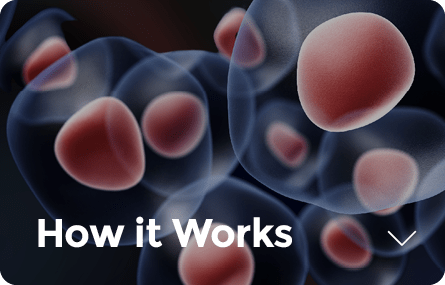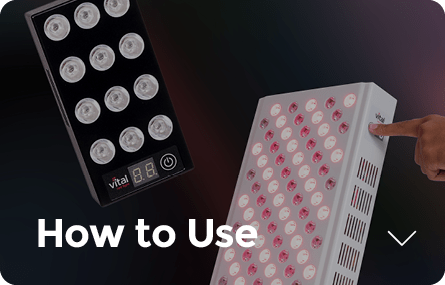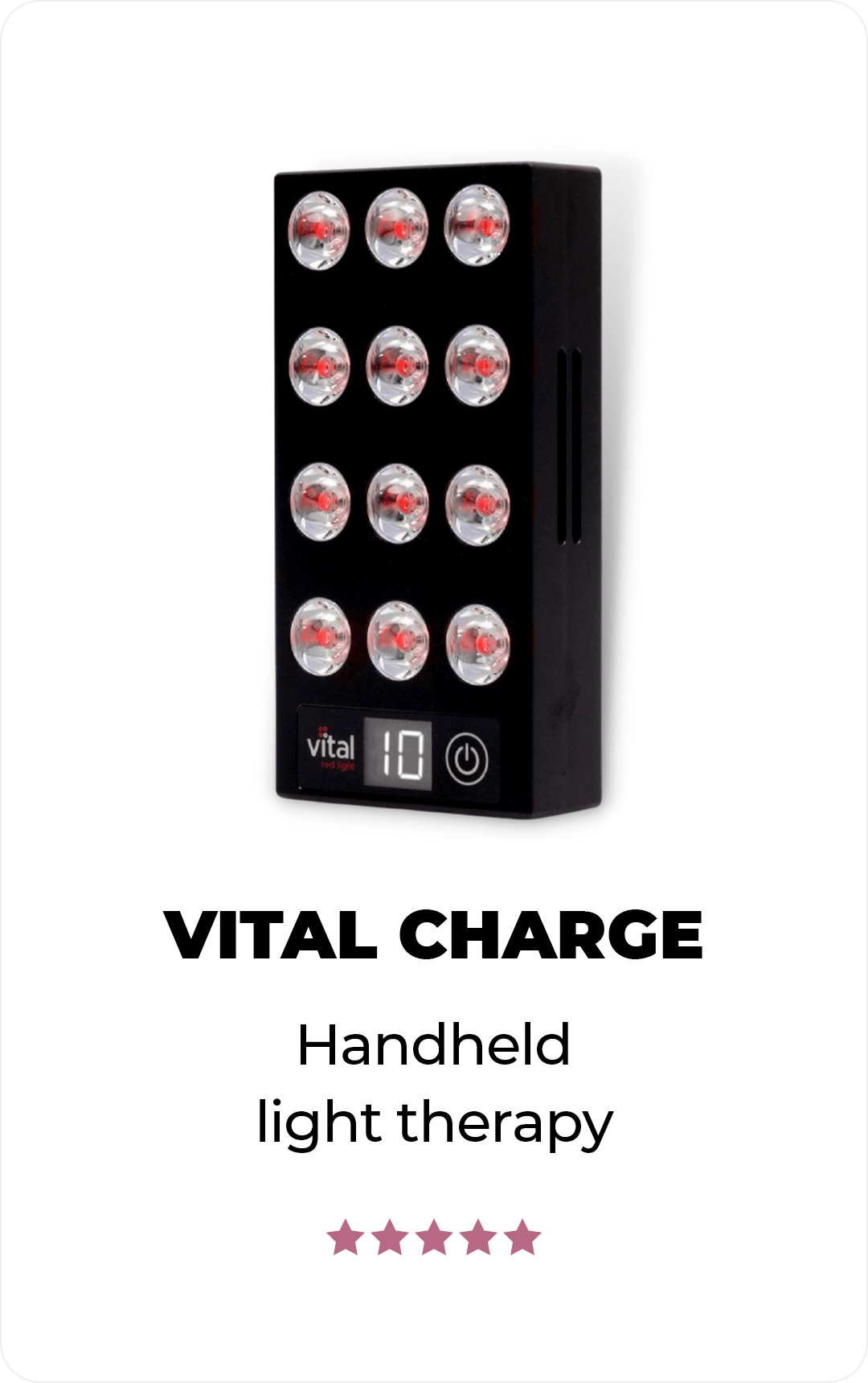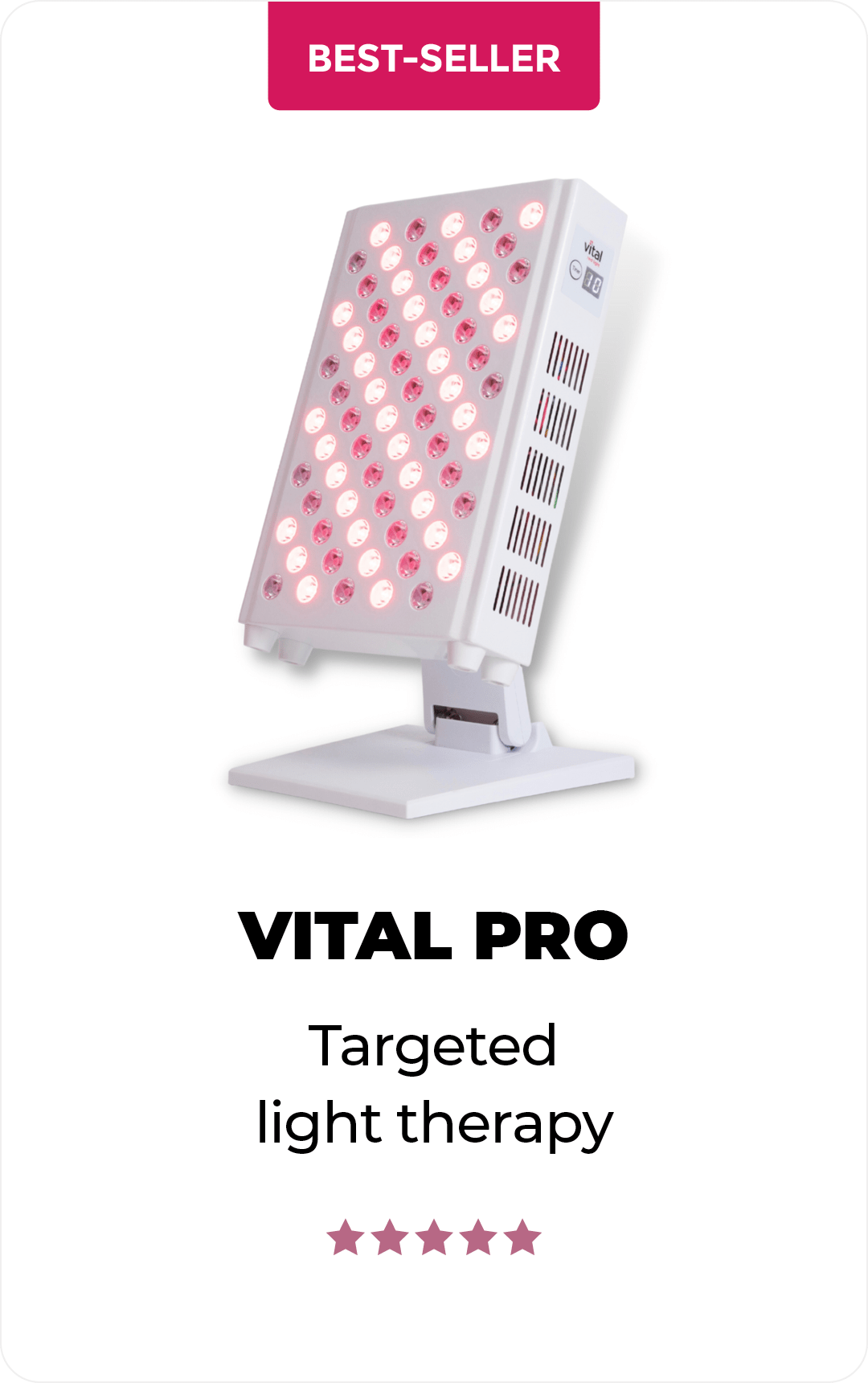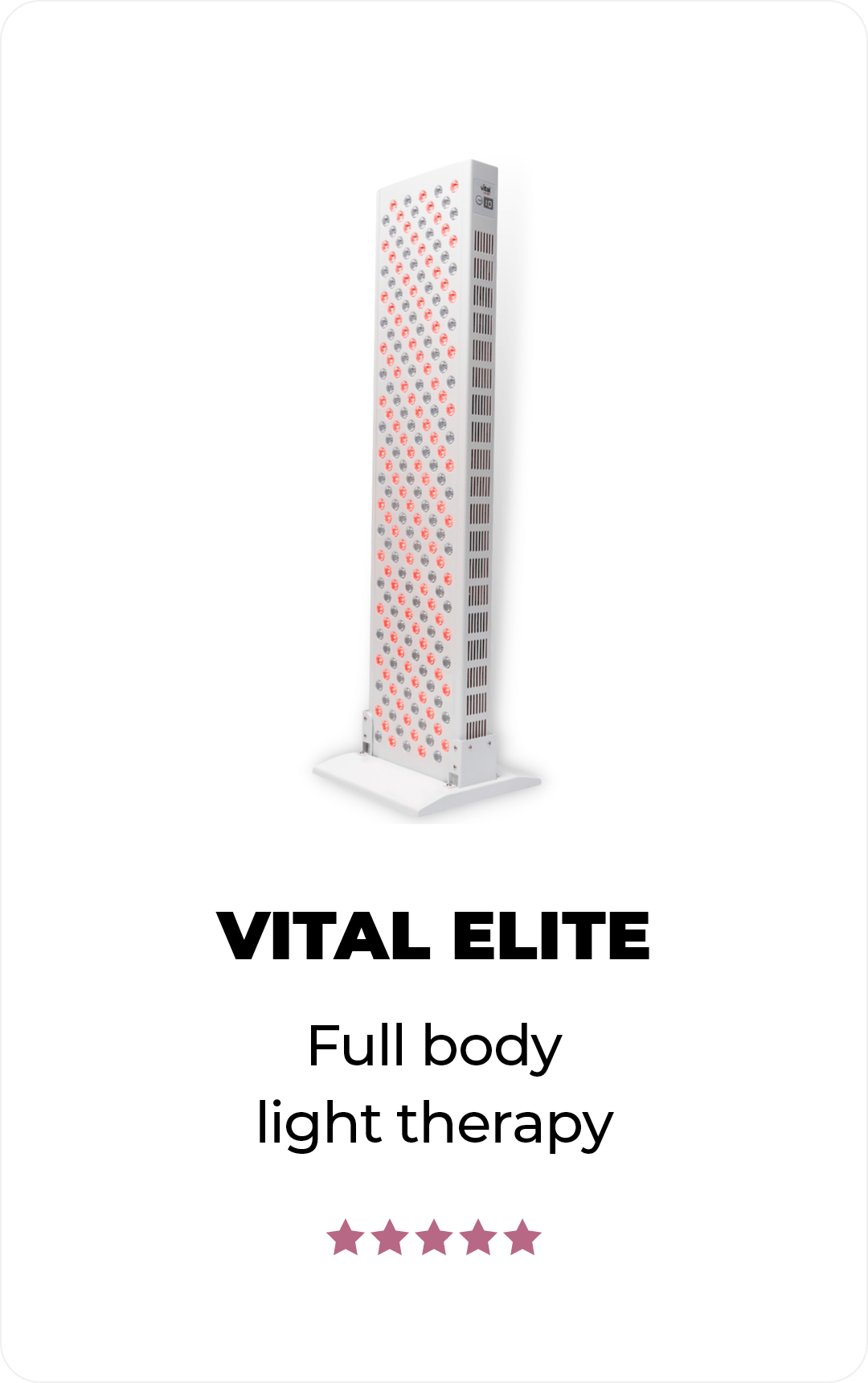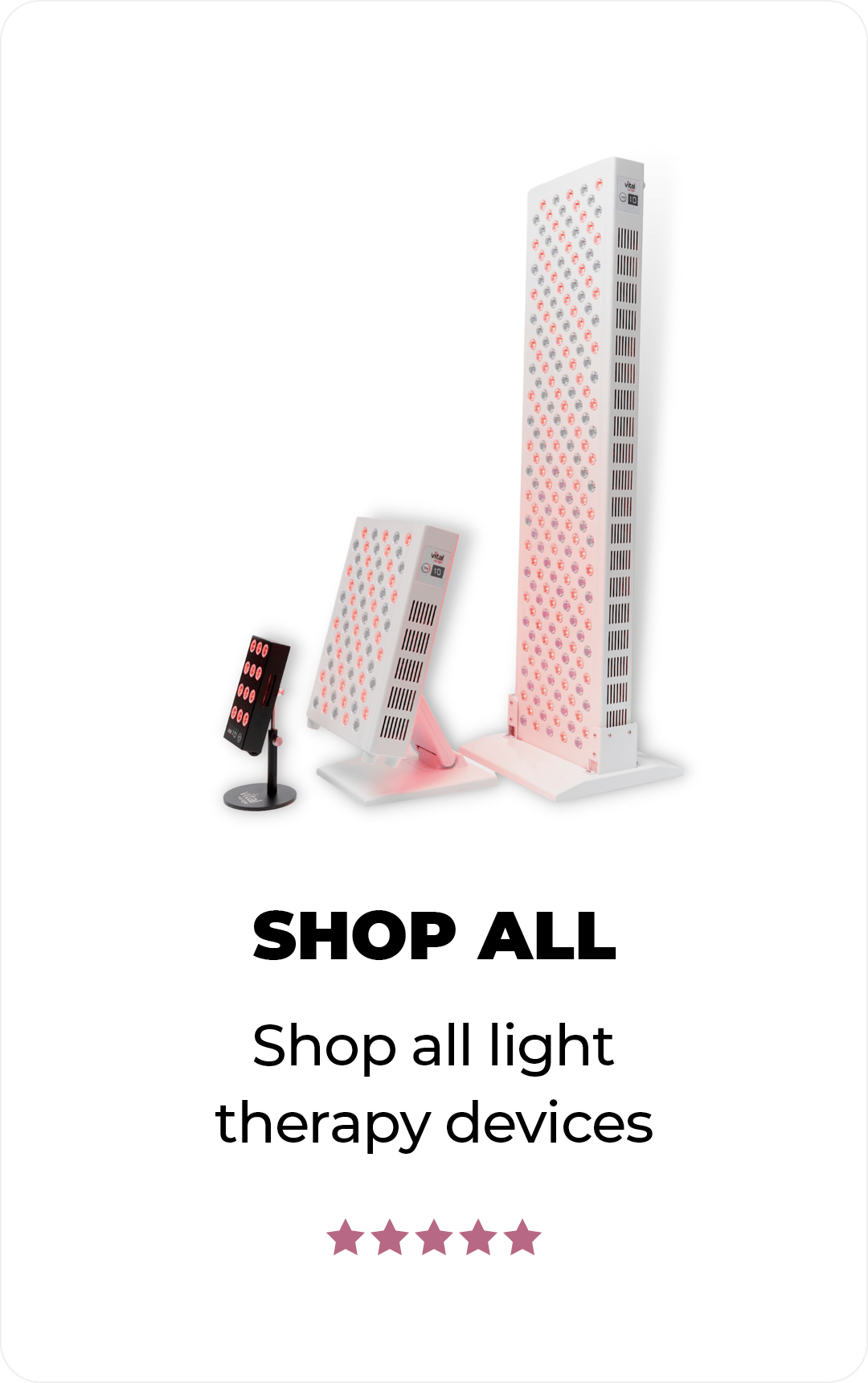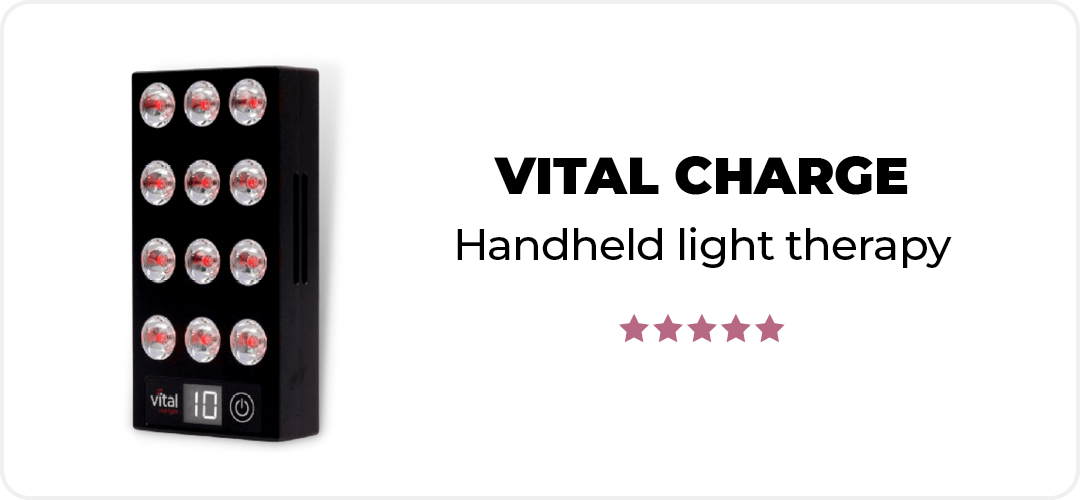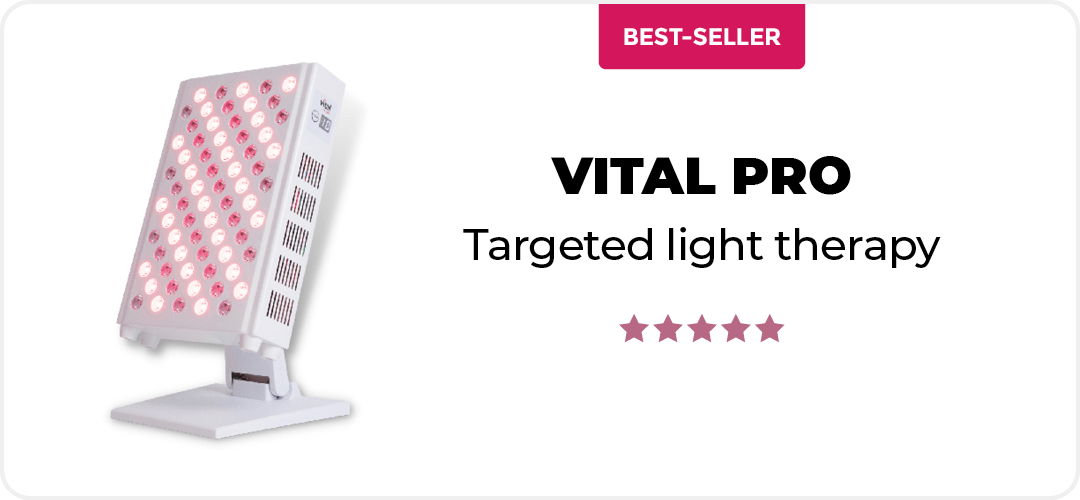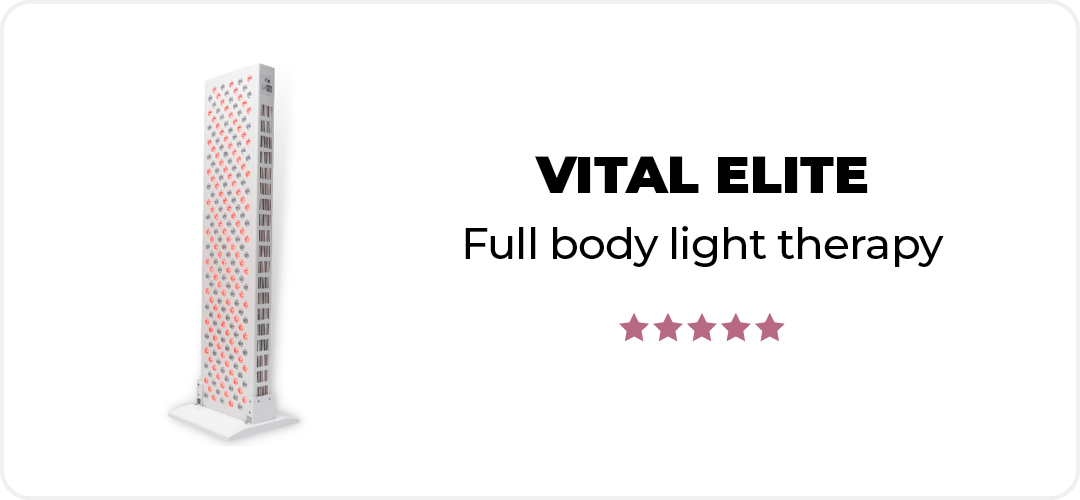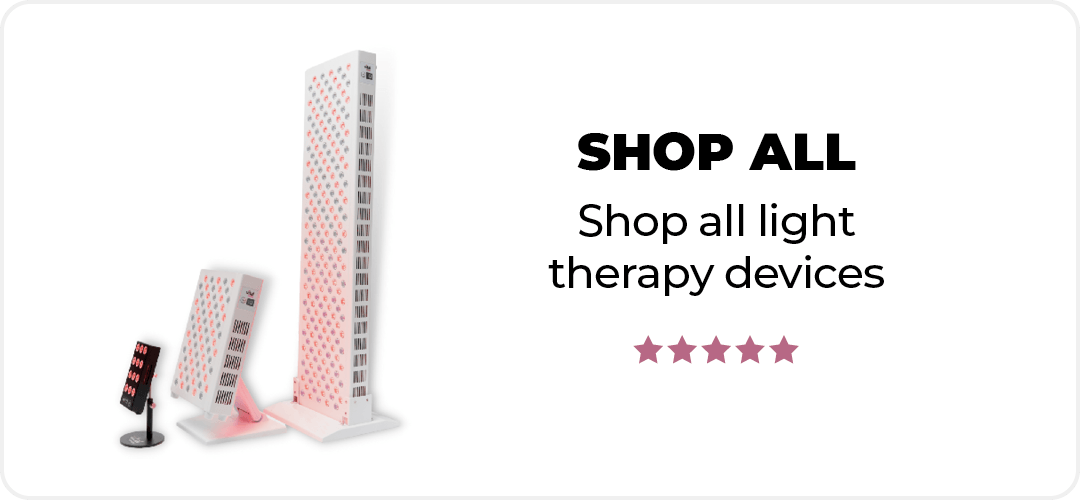The Science-Backed Benefits of Red Light Therapy.
Interested in red light therapy? Read this first. From skin health and faster healing, to improving sleep, we have gathered all the facts and debunked any myths, so you can make an informed decision on this revolutionary treatment.
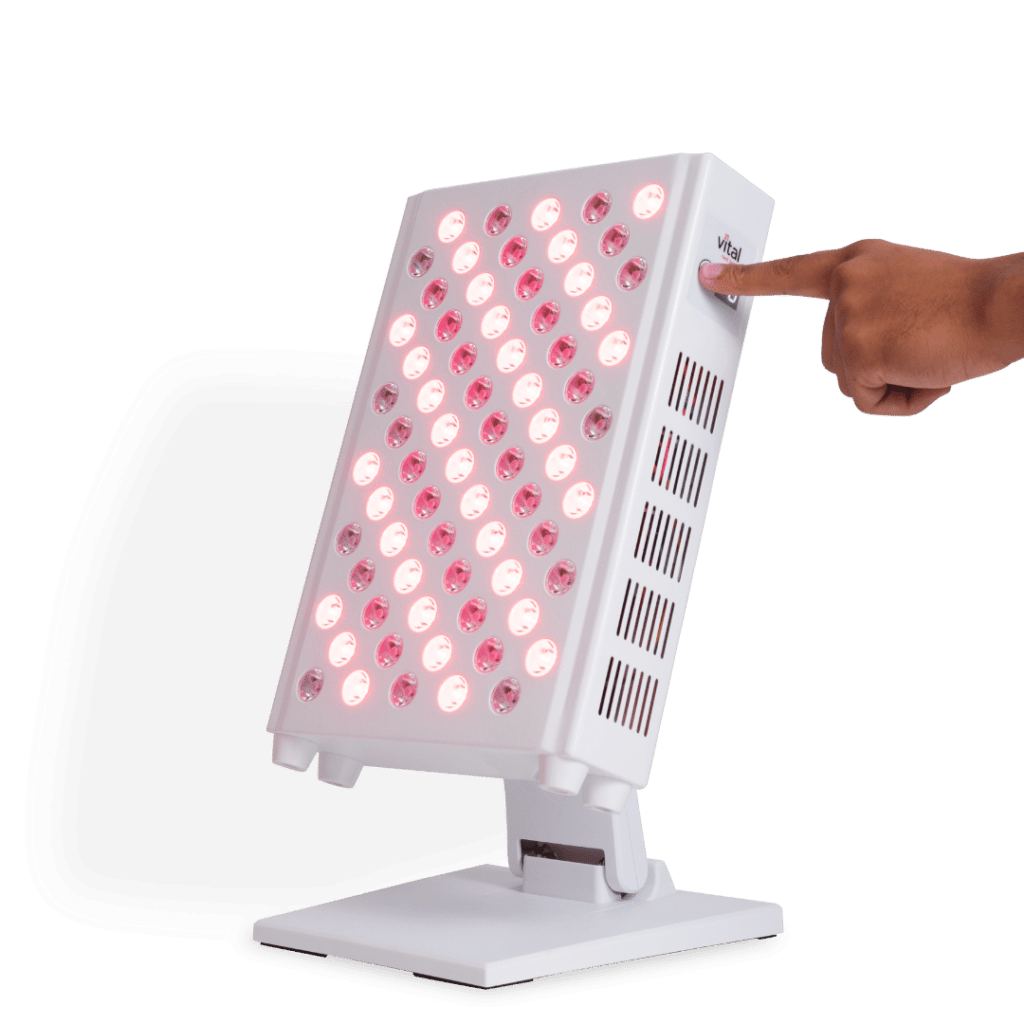
What is Red Light Therapy?
Red light therapy, which is also referred to as photobiomodulation, has been extensively researched in clinical trials globally since the 1980s. It was first developed by NASA to promote plant growth during space missions, but it was soon discovered that red light therapy also has numerous health benefits for humans. It is usually administered through a whole or a LED panel.
Treatment sessions are typically short and last for about less than 10-minutes and repeated a few times a week. What’s remarkable is that, unlike many different therapies that address similar conditions, red light therapy has almost no reported side effects.
Does Red Light Therapy Actually Work?
While the effectiveness of red light therapy depends on the specific condition it is being used to treat, it is important to note that this therapy is not just a fleeting trend or fad. It is a clinically validated health intervention that has been extensively researched over the last +20 years. With over a thousand trials and studies conducted, red light therapy is supported by extensive peer-reviewed research. We have covered this topic in detail in this article here.
THE SCIENCE
How Red Light Therapy Works
Every living organism is made up of cells, which are the fundamental units of life. They carry out essential functions to maintain the health and vitality of the entire organism. These functions include respiration, metabolism, and energy production, among others. When cells are not functioning optimally, it can have a cascading effect on the entire body, leading to various health problems. That’s where red light therapy comes in. Red light therapy can help improve cellular health by enhancing mitochondrial function and energy production.
By stimulating the production of ATP, the energy currency of cells, red light therapy can help cells perform their functions more efficiently. This can lead to a wide range of systemic health benefits, from improving skin health, reducing inflammation, increasing muscle recovery, and much more.
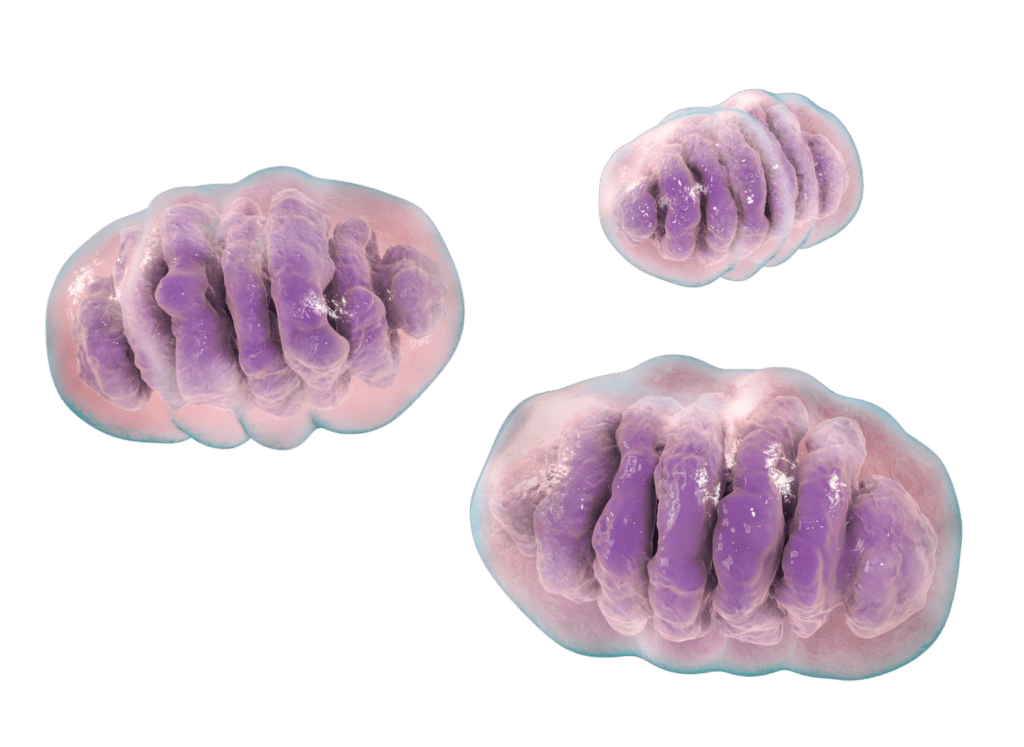
~90% of our cellular energy is produced by mitochondria
Mitochondria produce 90% of our cellular energy in the form of ATP. Red light therapy enhances mitochondrial function and increases ATP production, leading to a variety of health benefits.
Benefits of Red Light Therapy
Red light therapy triggers various physiological events in the body upon exposure. The benefits of this treatment are vast and can be attributed to how it works and the specific changes it causes in the target area. Read on to learn more about how red light therapy can positively impact your health and wellness.
Full Body Wellness
Red light therapy is a natural way to enhance cellular health throughout the body, with over 80 areas that can be stimulated, including muscles, blood, organs, bones, joints, and skin health. By promoting homeostasis and optimizing the cellular respiration process that produces ATP energy, red light therapy has been shown to provide systemic benefits when combined with a healthy lifestyle.
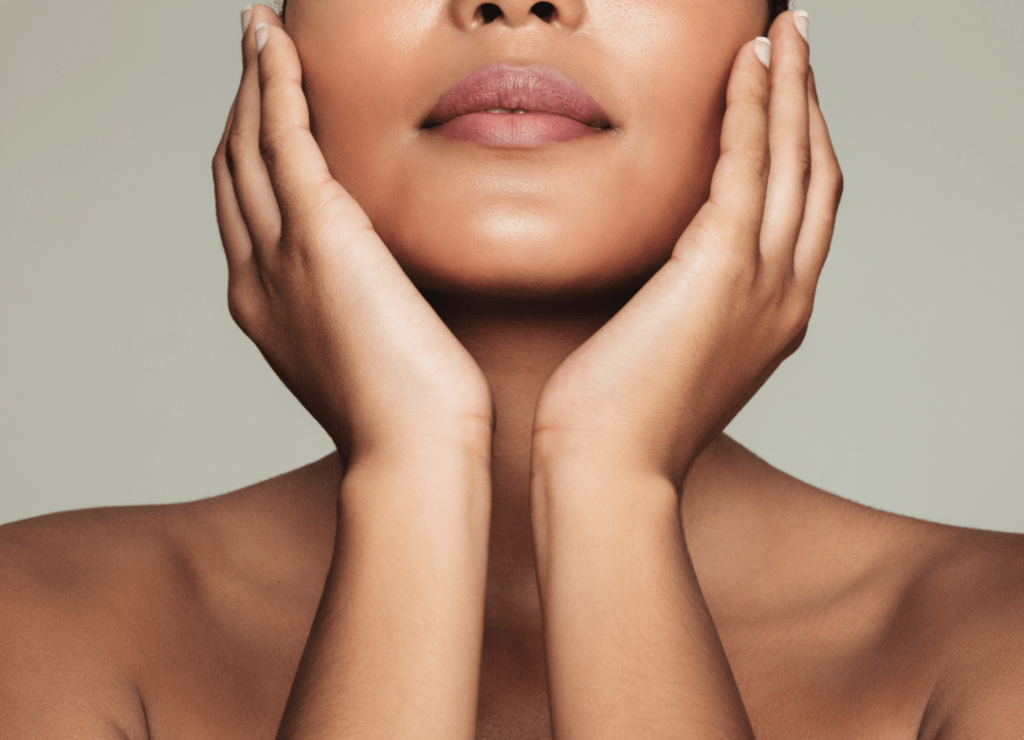
Skin Health & Anti-Aging
Red light therapy can improve skin health and reduce signs of aging by by stimulating collagen and elastin production, repairing damage from UV rays, and reducing inflammation and bacteria. It has been found to improve skin conditions such as acne, sunspots, eye wrinkles, and enhance skin complexion, roughness, and collagen density. Early clinical trials have also found that natural red and near-infrared light can have a therapeutic effect on the symptoms of painful skin conditions such as psoriasis, herpes, and acne. Learn more about red light for skin health here.

Wound Healing, Scars and Tissue Repair
Red light therapy has been found to promote wound healing and tissue repair by stimulating various physiological processes that aid in cellular regeneration such as increasing circulation. This can lead to faster healing times and improved recovery from injuries. In addition, red light therapy can stimulate the production of collagen, which is essential for healthy skin, tissue, and scare repair. Studies have demonstrated the effectiveness of red light therapy in treating a range of skin conditions, including burns, scars, healing after surgery, and diabetic ulcers.
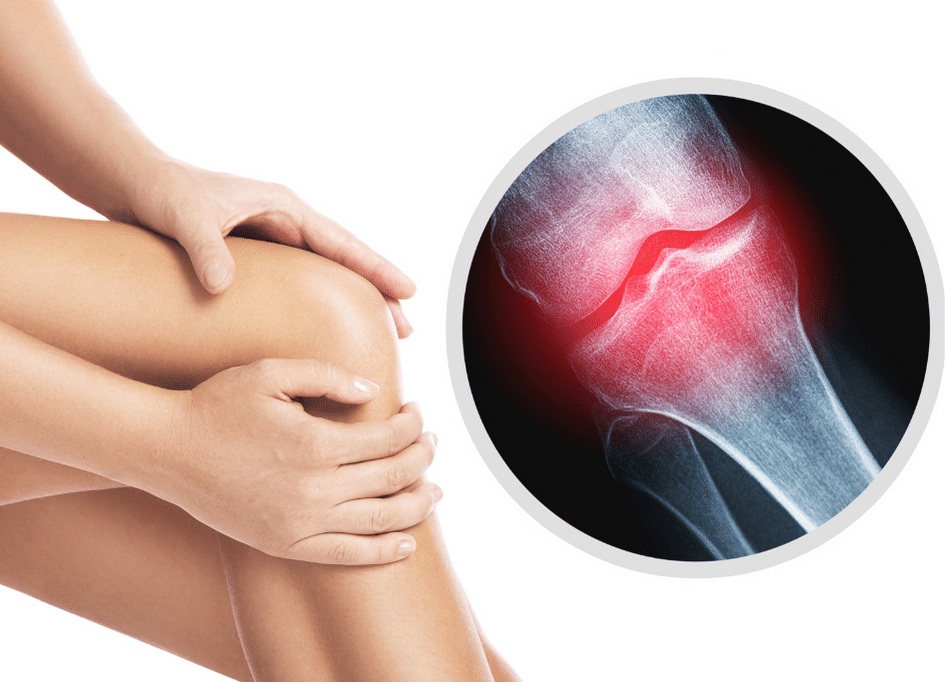
Joint Pain and Inflammation
Red and infrared light therapy can effectively reduce joint pain and inflammation in people with arthritis, particularly rheumatoid arthritis. A 2000 review of 13 randomized controlled trials reported a 70% reduction in pain. Red light therapy has been theorized to release nitric oxide, which enhances blood circulation, delivering vital nutrients and oxygen to damaged tissues, promoting their repair and regeneration, and ultimately reducing pain and inflammation. Red light therapy for pain is a less invasive and safe method for pain relief compared to traditional methods.
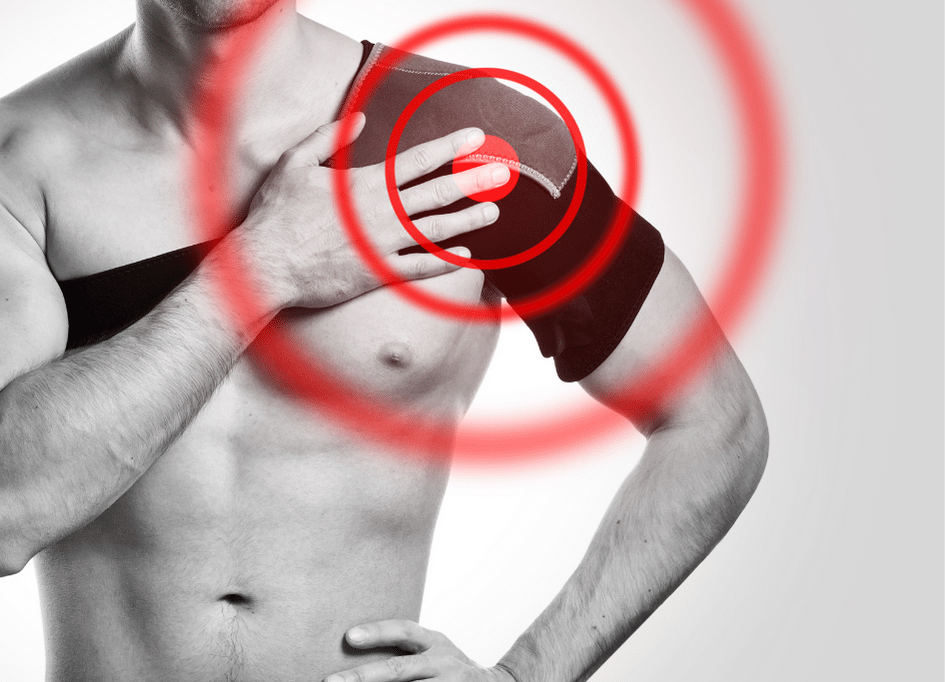
Muscle and Injury Recovery
Red light therapy has been shown to reduce injury recovery time and the return-to-play period of athletes, including a study in which the US track team experienced a 50% reduction in recovery time from 19.23 to 9.6 days. In addition to improving injury recovery time, red light therapy has also been shown to enhance muscle recovery time and physical performance. A study published in the European Journal of Applied Physiology found that when red light therapy was combined with exercise, it resulted in over a 50% increase in muscle thickness and strength, as measured by ultrasound imaging and isokinetic dynamometry.
Uses of Red Light Therapy
Red light therapy is a relatively young field of study, but it has shown great promise as an effective treatment for a variety of conditions with minimal side effects. This therapy is a safe and natural alternative to traditional treatments, making it an attractive option for many people. Its versatility has been demonstrated in numerous studies, showing its effectiveness in treating a wide range of health concerns.
Sleep Optimization
Red light can benefit sleep by helping to regulate the body’s natural circadian rhythm and improve sleep optimization. It is well known that exposure to blue light, can disrupt the body’s production of the sleep hormone melatonin and interfere with the sleep-wake cycle. By exposing your eyes to light similar to sunlight, red light therapy can help to realign your circadian rhythm, leading to feeling more tired in the evening and more awake in the morning.
One theory of red light therapy proposes that it boosts natural melatonin production, with a 2012 study showing that 30 minutes of red LED light therapy every night for 14 days improved sleep quality and melatonin levels. Another 2019 study published by a sleep research journal found that red light can alleviate sleep inertia, a common side effect of chronic sleep deprivation.
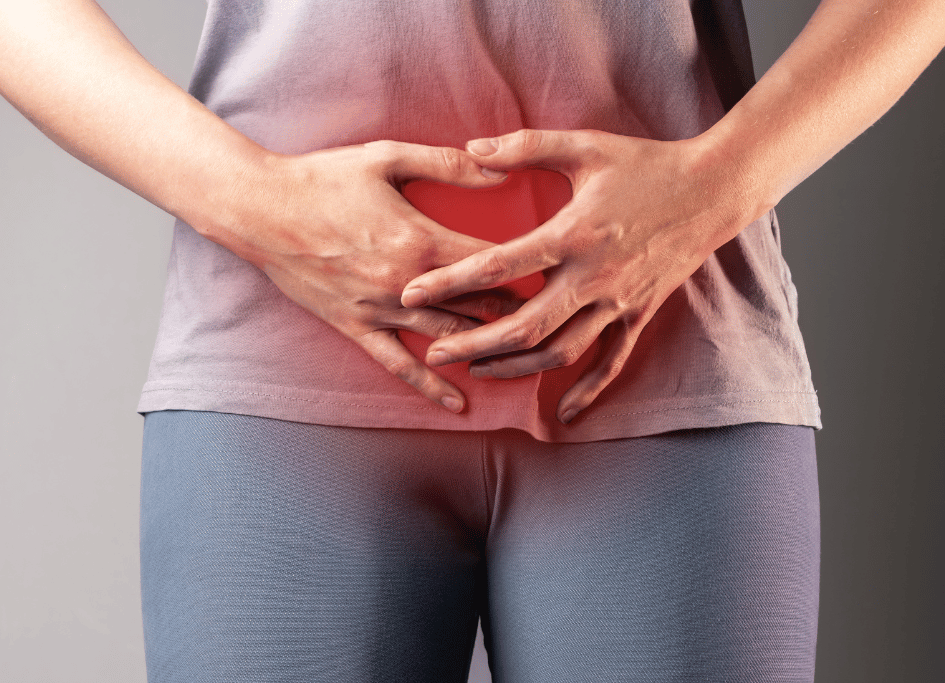
Inflammation Support
Light therapy devices can enhance the effectiveness of the body’s natural inflammation response, which can lead to faster healing and less discomfort. It has been shown to limit the inflammatory response and reduces oxidative damage by reducing inflammatory cytokines
Studies have demonstrated that the wavelengths of red and NIR light stimulate the mitochondria to optimize the cellular respiration process, which increases function and speeds healing. This type of therapy has been found to reduce inflammation and support arthritis and joint pain relief by improving blood flow to damaged tissues. In addition, red light therapy can trigger the formation of blood vessels and the production of collagen and fibroblasts, all of which can help reduce inflammation.

Sports Performance & Recovery
Light therapy is widely used by trainers and pro athletes to improve fitness, boost physical performance, and support the recovery process. Muscle cells require a great deal of energy, and grow and strengthen through a process of tears and repairs. Light therapy helps your body produce and use energy more efficiently. Supporting circulation and inflammation reduction with light therapy can also help you heal and recover after injuries and workouts.
A study published in the European Journal of Applied Physiology showed that combining light therapy with exercise resulted in a more than 50% improvement in muscle thickness and strength.
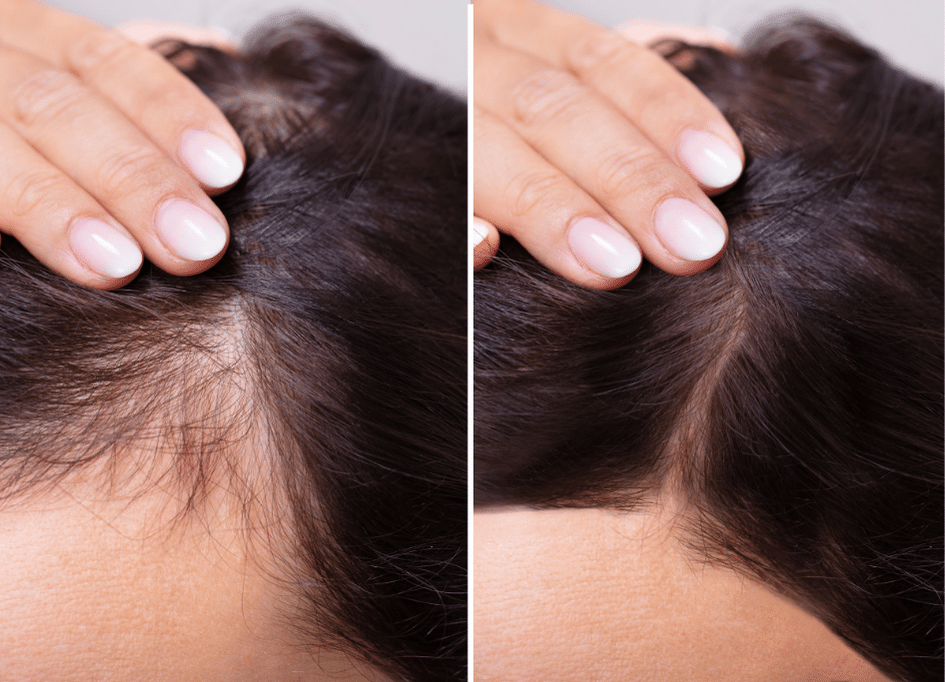
Hair Loss & Hair Health
Red light therapy is a non-invasive treatment for hair loss that is believed to stimulate hair growth in weak cells by irradiating photons into scalp tissues, invigorating circulation and promoting stimulation of hair follicles. According to a meta-analysis of 11 studies and 680 patients who received red light therapy for hair growth showed significant improvements in hair count, density, thickness, and tensile strength, and positive patient experiences with the treatment.
Although medical professionals generally agree that red light therapy can be effective for some individuals with hair loss, the ideal wavelength, coherence, and dosimetric parameters for LLLT treatment have not been established.
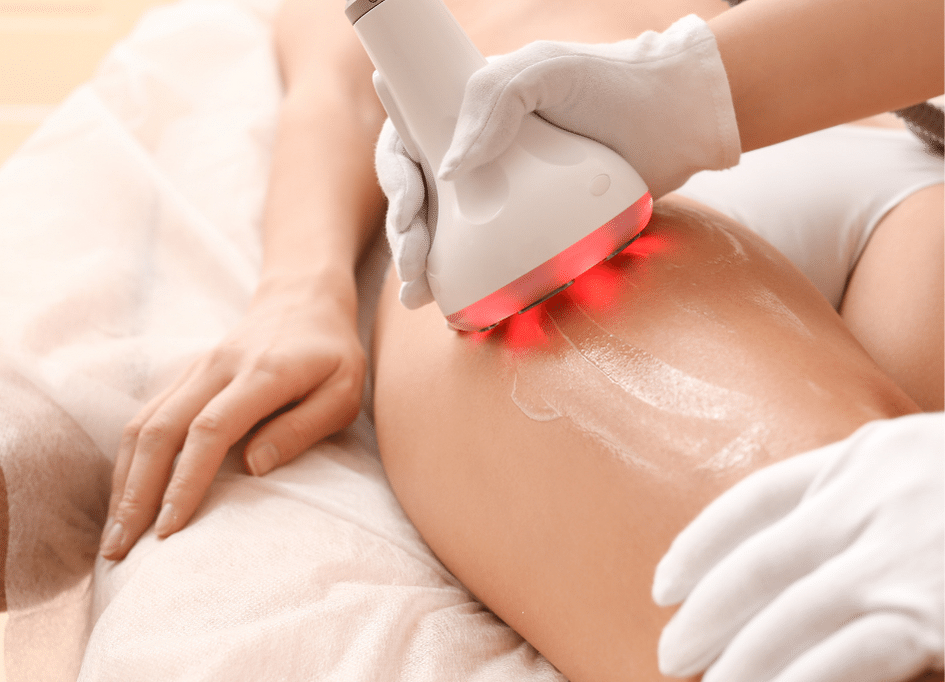
Weight Loss & Cellulite Reduction
Red light therapy for weight loss is a controversial method despite patient testimonials and study results. Further research is needed to determine the effectiveness of red light therapy for weight loss, as the process of how it works is not yet fully understood.
Some studies have shown a reduction in fat after six or more treatments, including a 2020 study which led to a .8″ waist circumference reduction, a 2009 randomized study which found participants lost significantly more inches in their abdomen, hips, and thighs than the control group, and a 2013 study which observed a significant decrease in waist, hip, and thigh circumference. Another 2011 study showed that a combination of infrared therapy and treadmill training led to less cellulite in the red light therapy group compared to the treadmill-only treatment group. However, these studies had limitations, such as a lack of a control group and were often paired with exercise.
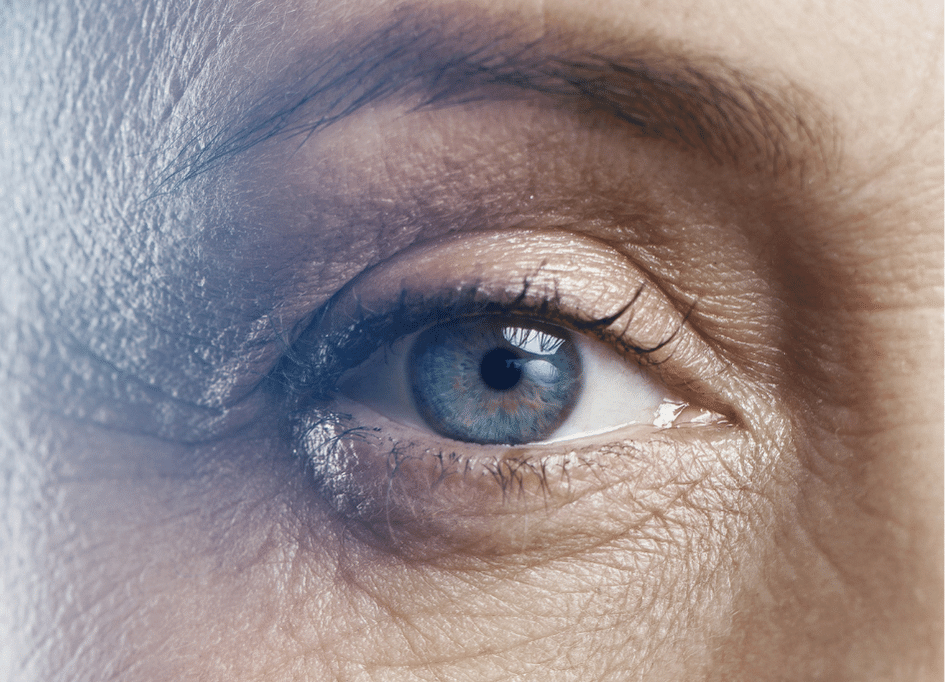
Eye Health
Red and near-infrared light have been shown to potentially improve eye health. In a study of 200 individuals with age-related macular degeneration, red light exposure led to improved visual acuity in 95% of participants and was maintained for up to thirty-six months.
Another study in 2021 found that a single three-minute red light treatment improved color vision in participants over 35 years of age, with improvements lasting up to a week after treatment. These findings suggest that red and near-infrared light could slow down the aging of photoreceptor cells and promote better overall eye health.
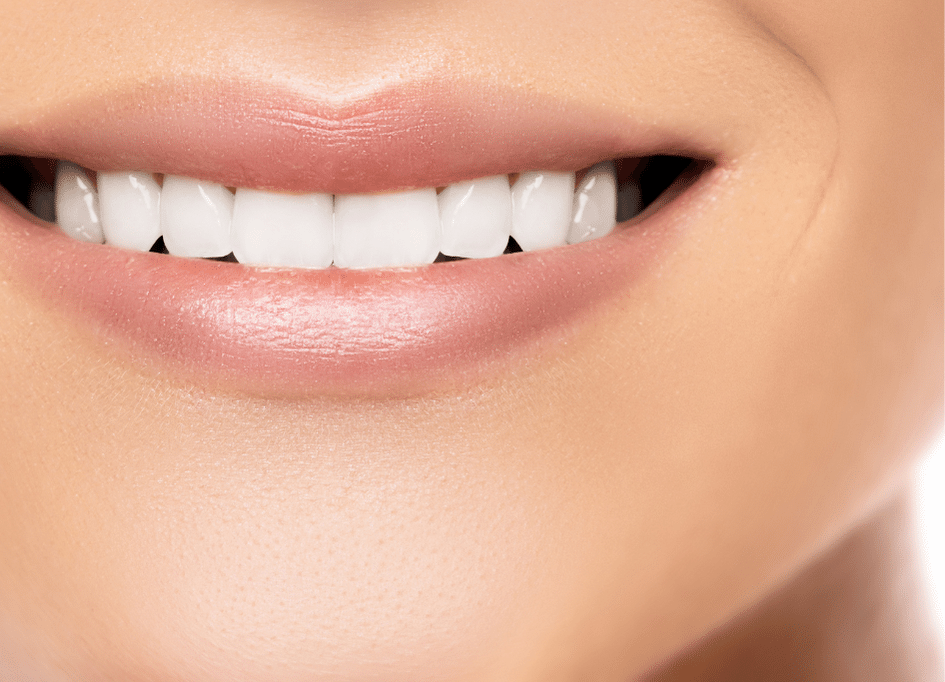
Oral Health
Early studies show that red and near infrared light triggers a regeneration of particular parts of the tooth and gum whilst simultaneously reducing the number of negative bacteria. Studies have also shown that red light therapy can help heal mouth ulcers and reduce pain and discomfort caused by dental procedures such as extractions or root canals. While further research is needed to fully understand the mechanisms behind these effects and to determine optimal treatment protocols, red light therapy has the potential to be a valuable tool in improving oral health.

Psoriasis, Acne, Eczema
Red light therapy has been shown to help with a variety of inflammatory skin conditions, including psoriasis, acne, and eczema. Inflammation is a common link between these conditions, and red light therapy works by reducing inflammation through increased blood flow and cell regeneration. In these conditions, red light therapy can help to improve skin hydration by increasing circulation in the skin, which improves oxygen and nutrient delivery to cells. Additionally, red light therapy can increase cellular turnover rate, helping to regenerate new skin cells faster than usual, which can help to repair the skin barrier by strengthening it with new cells that are stronger, healthier, and less prone to damage.
Risks and Side Effects of Red Light Therapy
There are generally no side effects with red light therapy with most common compliant being tiredness or partial redness of the skin. However, it is still recommended to consult with a doctor before using it as a treatment for any medical condition and to never use it as a substitute for prescribed medical treatments.
Download Our FREE E-Book
Download our official Red Light Therapy guide with over 1,214 clinical references on the power of Red Light Therapy.




